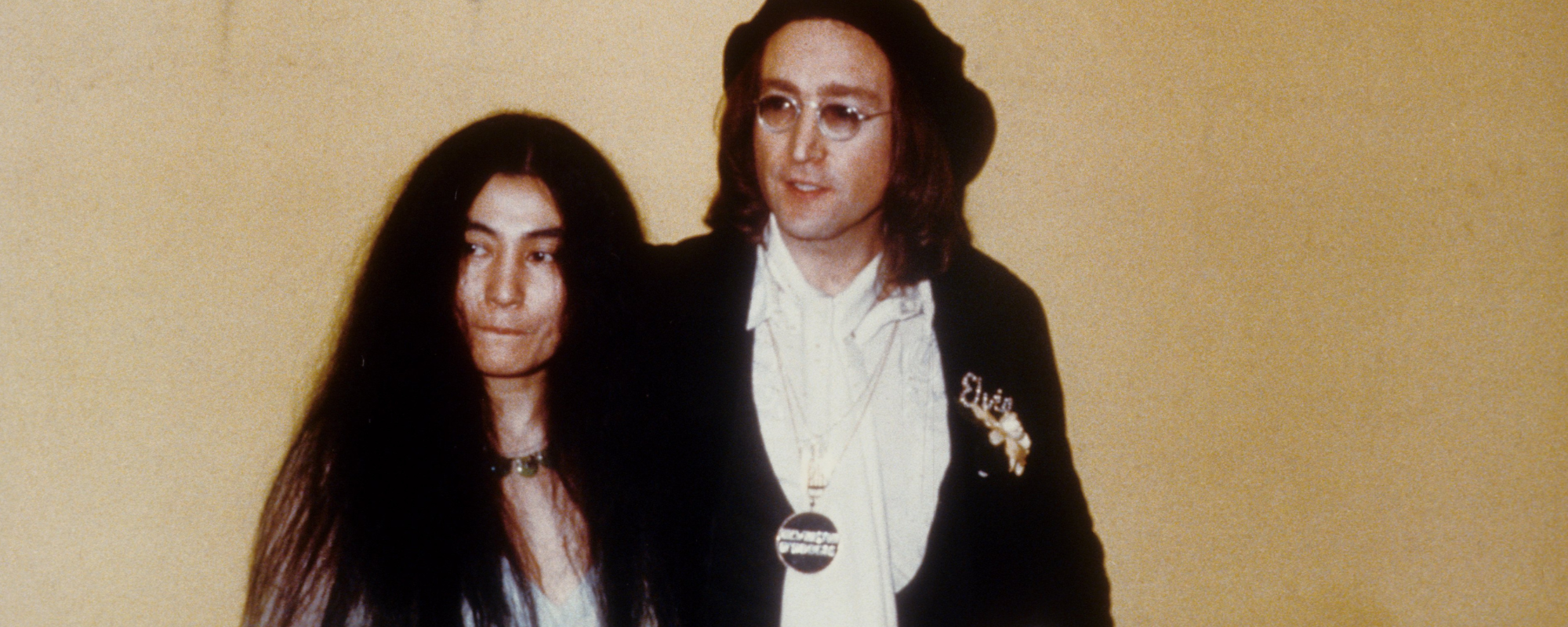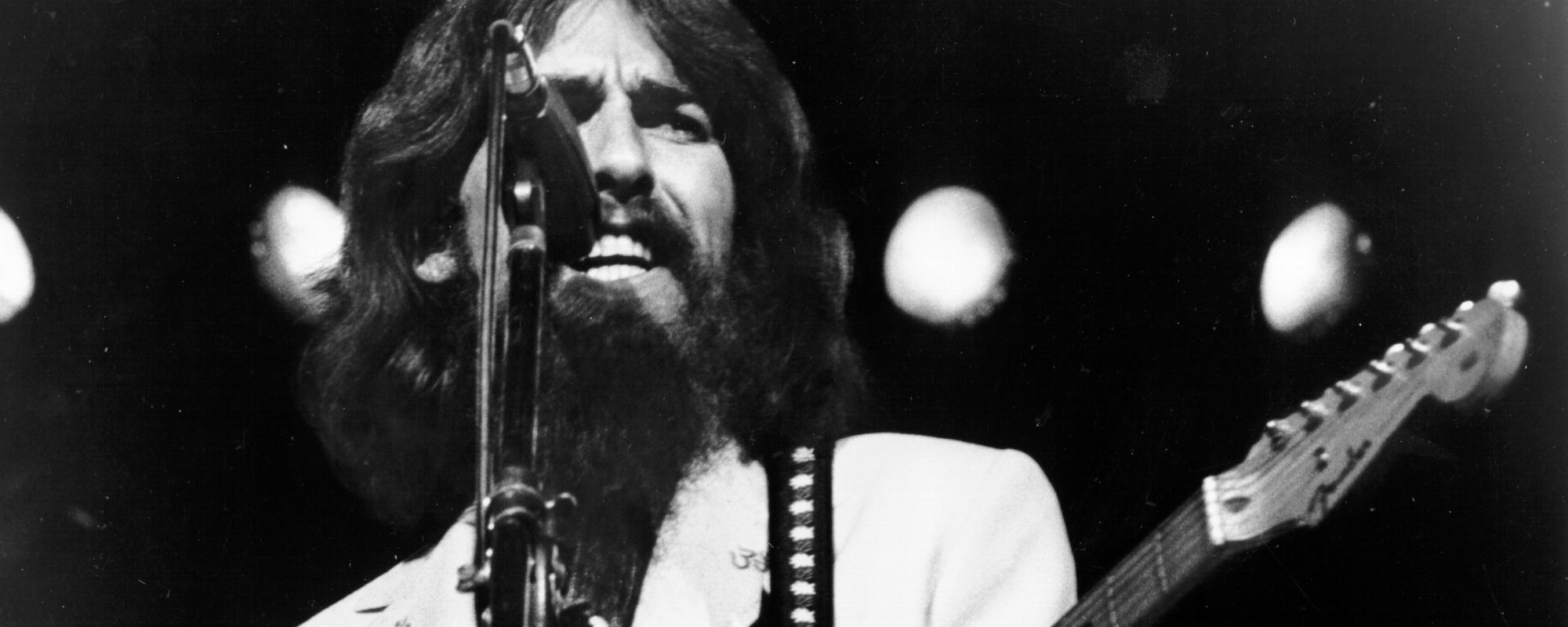If you’re looking for a go-to guy for rock anthems, Bruce Springsteen should be one of the first ones you seek. He’s always possessed a knack for wide-screen evocations of the human spirit in all its glory and frailty. “The Promised Land” stands out among these songs because of how it doesn’t sugar-coat life’s pressures, yet still celebrates resilience and the indomitability of faith.
Videos by American Songwriter
What is this song about? What inspired him to write it? And how is it tied into the themes permeating his 1978 album Darkness on the Edge of Town? As it turns out, Springsteen wrote this ode to strength at a moment when he was powerless to record it.
Entering the Darkness
Bruce Springsteen’s ascent to rock superstardom only seemed meteoric. His 1975 album Born to Run slingshotted him to widespread notoriety, but that had been preceded by years of plugging away on the road and two 1973 albums that won him critical acclaim but not a lot of sales. Springsteen surely noticed that adding Jon Landau as producer for Born to Run had made a difference in terms of the accessibility of his music.
But based on earlier contracts he had signed, Springsteen was still legally enjoined to record with his initial manager and producer Mike Appel. As Born to Run soared, Springsteen also began to wonder why his personal fortunes weren’t rising in kind. A closer look at those early contracts revealed that they were far more beneficial to Appel, leading to a rift between the two men and legal proceedings.
As part of this battle, Springsteen was legally prevented from recording with anybody else but Appel overseeing the sessions. Hence, he couldn’t quickly follow up Born to Run. Luckily, he could still write, and a road trip provided the inspiration for a song that would be one of the most potent he would ever record (once he was legally able to do so).
Land of Plenty
As Springsteen was enduring these legal shenanigans and plotting his next move, he found time for a journey that helped inspire not just “The Promised Land,” but also the entire feel of Darkness on the Edge of Town. He explained as much in an interview at the Toronto Film Festival in 2019 (as collected in the book Springsteen on Springsteen: Interviews, Speeches, and Encounters, edited by Jeff Burger):
“Also, we traveled into the Southwest, me and Steve Van Zandt. We flew to Reno and bought a two-thousand-dollar (car) – I think it was a Ford – and we drove it for one thousand or so miles through the Southwest and we took some photos. And I passed a place called the Rattlesnake Speedway in Utah. That’s just such a great name. And all those things started to seep into (me). I was interested in writing music that felt not just New Jersey- or boardwalk-based. I wanted to bring in the full landscape of the whole country.”
When Springsteen and Appel finally settled their nearly-yearlong dispute in 1977, he was ready to roll with the songs inspired by this idea. “The Promised Land” arrived as one of the toughest rockers he and his E Street Band had ever laid down, complete with Springsteen’s impassioned harmonica, Van Zandt’s short-but-piercing guitar solo, and Clarence Clemons’ gritty sax break. You can practically feel the desert dust in your face as you listen.
What is “The Promised Land” About?
Springsteen used the road-trip experience as a setting, and then created a working-class narrator to be his avatar. Darkness on the Edge of Town featured many characters of this ilk, as Springsteen had largely bid farewell to the romantic outcasts from previous albums whose only job seemed to be getting into gang fights. It symbolized his songwriting maturity; not for nothing does this character belt out, Mister, I ain’t a boy, no I’m a man.
This guy is grinding for his living: Working all day in my daddy’s garage/Driving all night chasing some mirage. But he can’t help himself from visualizing something better: Pretty soon, little girl, I’m gonna take charge. He speaks viscerally of the damage done by the working routine, describing blind eyes, cold blood, and a raging pain in his heart.
The narrator drives into the eye of a violent storm, if only because he’s sure that his realistic yet unwavering belief will grant him safe passage where youthful daydreaming will not: Blow away the dreams that tear you apart/Blow away the dreams that break your heart. In the chorus, he hears dogs howling in support of his ambition to find something better. He leaves us with his faith: And I believe in a promised land.
Like much of the Darkness album, this song featured Bruce Springsteen writing in a more concise fashion than he had previously done. Yet it still delivers a wallop. Perhaps because he was involuntarily forced to wait on his music for a while, The Boss knew exactly what message he wanted to send with it once those studio doors opened back up for him. “The Promised Land” epitomized that message with gusto.
(Photo Credit: Rob DeMartin)












Leave a Reply
Only members can comment. Become a member. Already a member? Log in.